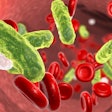Dear LabPulse Member,
The possibility of reopening economies has gained more momentum in the last week with reports of lockdown loosening abroad and with the release of phased plans and guidelines on the state and federal levels in the U.S.
Yet there is also recognition of the toll the novel coronavirus has taken. As of April 20, there were more than 740,000 cases, and almost 40,000 deaths had been reported in the U.S., according to the U.S. Centers for Disease Control and Prevention (CDC). The CDC has provided details about a new antibody test it has deployed for broad-scale surveillance and research.
Globally, more than 2 million COVID-19 cases had been confirmed, with more than 139,000 deaths, according to the World Health Organization.
U.S. government officials said that more than 4 million tests have been conducted for coronavirus to date and that more than 1 million people are now being tested per week. During briefings of the White House coronavirus task force, officials have been spending more time than ever explaining the minute details of the types of testing and the number needed to allow states to move into the first phase of reopening their economies.
Admiral Dr. Brett Giroir, who is leading the U.S. testing effort, indicated during an April 17 press briefing that there is enough capacity to allow states to safely move into phase I of reopening and suggested that the positive rate for molecular testing should be approximately 10%.
In contrast with the confidence expressed by U.S. officials, the pressure to reopen has created questions and confusion about testing readiness, including concerns about quality and accuracy as well as availability.
The American Society for Microbiology has asked the U.S. Food and Drug Administration (FDA) for more oversight of COVID-19 serology tests that are flooding the market. Similarly, the American Association for Clinical Chemistry (AACC) has acknowledged problems with some commercial serology tests for the novel coronavirus, but it is urging the FDA to keep a hands-off regulatory approach when it comes to assays developed by CLIA-certified labs.
The AACC has also spoken out on the lack of supplies, noting that there is a shortage of many necessary items to carry out testing, including nasal swabs to collect specimens for molecular tests.
The bottleneck for SARS-CoV-2 testing has dramatically underscored how crucial diagnostic testing is for individual and public health, noted David Grenache, PhD, in an opinion piece we published yesterday on LabPulse.com. Grenache, who is president-elect of the AACC, explains how lab professionals will continue to prove their value during the pandemic.
For those just getting started in the pathology profession, the pandemic means a disruption in education. But necessity is the mother of invention. Sponsored by the College of American Pathologists, a new series of virtual lectures was quickly created to offer pathology residents a remote option for learning about their specialty. The series offers some regularity and online companionship during an extraordinarily difficult time, organizers say.



















